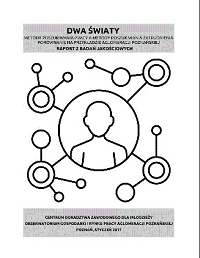The conference “Two worlds? Methods of finding a job and methods of recruitment. A comparison using the example of the Poznań agglomeration” was held on April 6 in Poznań, organised by the Economic and Labour Market Observatory of the Poznań Agglomeration Vocational Counselling Centre for Youth. Representatives of Poland’s ReferNet network attended the conference.
The purpose of the conference was to present the results of qualitative research (FGI) conducted by the Observatory among students, employers and labour market institutions of the Poznań agglomeration. A total of 60 participants took part in the study. The study looked at the strategies and methods of looking for work and employees from the perspective of three groups: students, employers and labor market institutions.
A number of postulates were developed by the various groups participating in the study. Employers claimed that such characteristics in a candidate as loyalty, initiative, personal culture, and social competence are very important in the process of looking for an employee. It is also important for candidates to be able to justify why they are applying for a position in the company. Students noted the need to increase the number of hours spent on practical work during formal education. They also recognised that elements facilitating job searches include early contact with the labour market and individual counseling, also via the internet. Representatives of labour market institutions (including schools) recognised that promoting new methods of working among counsellors, such as using case studies or online counseling, will improve the process of searching for jobs and finding employees. Raising the prestige of vocational training, also among school directors and teachers, was considered to be a very important issue.
More information about the study is at the Observatory’s website and in the report entitled „Dwa światy. Metody poszukiwania pracy a metody poszukiwania zatrudnienia. Porównanie na przykładzie aglomeracji poznańskiej [Two worlds. Methods of finding a job and methods of recruitment. A comparison using the example of the Poznań Agglomeration]” (in Polish).





